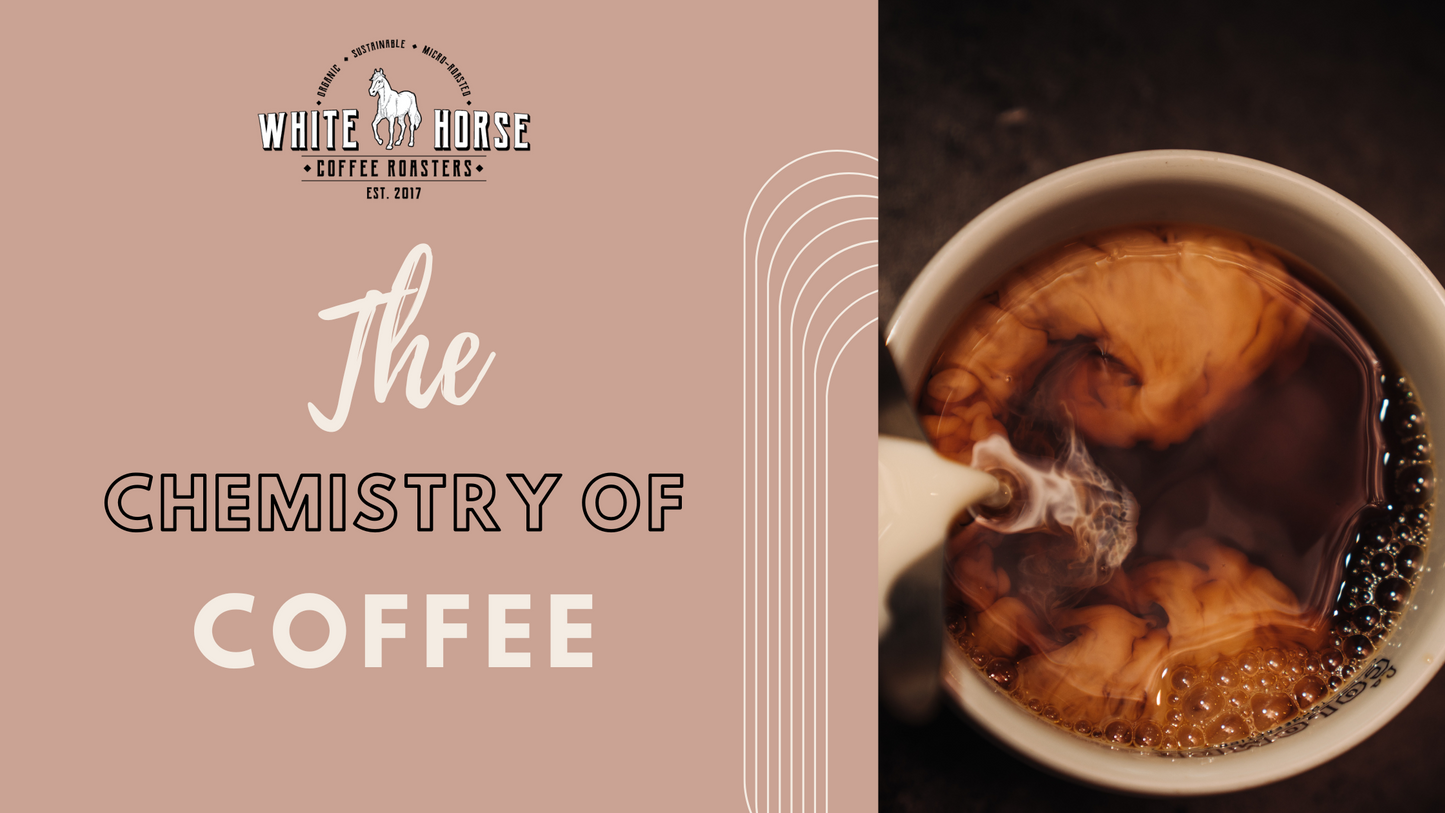Coffee is one of the most popular beverages in the world, and its chemistry is just as complex as its flavor. The chemical compounds in coffee beans contribute to its aroma, taste, and caffeine content.
The main chemical compounds in coffee beans include:
- Caffeine: Caffeine is a stimulant that is responsible for the energy boost that many people associate with coffee.
- Sugars: Coffee beans contain a variety of sugars, including glucose, fructose, and sucrose. These sugars contribute to the sweetness of coffee.
- Acids: Coffee beans contain a variety of acids which contribute to the sourness of coffee.
- Aromatic compounds: Coffee beans contain hundreds of aromatic compounds, which contribute to the complex flavor of coffee. These compounds are created during the roasting process, when the beans are heated to high temperatures.
The brewing process also affects the chemical composition of coffee. When coffee beans are brewed, the soluble compounds in the beans are extracted into the water. The amount of each compound that is extracted depends on a number of factors, including the grind size, water temperature, brewing time, and brewing method.
The final chemical composition of coffee is determined by the type of coffee beans used, the roasting process, and the brewing method. Different brewing methods extract different compounds from the beans, resulting in different flavors of coffee.
Since coffee is subjective, the best way to discover your favorite coffee variety and brewing method is by testing them! Try a dark roast like our Blue Ribbon Blend, or a medium roast like our Giddy Up Espresso Blend. And then test out some different brew methods like this pour over or french press, to see which you prefer.
Happy brewing!

